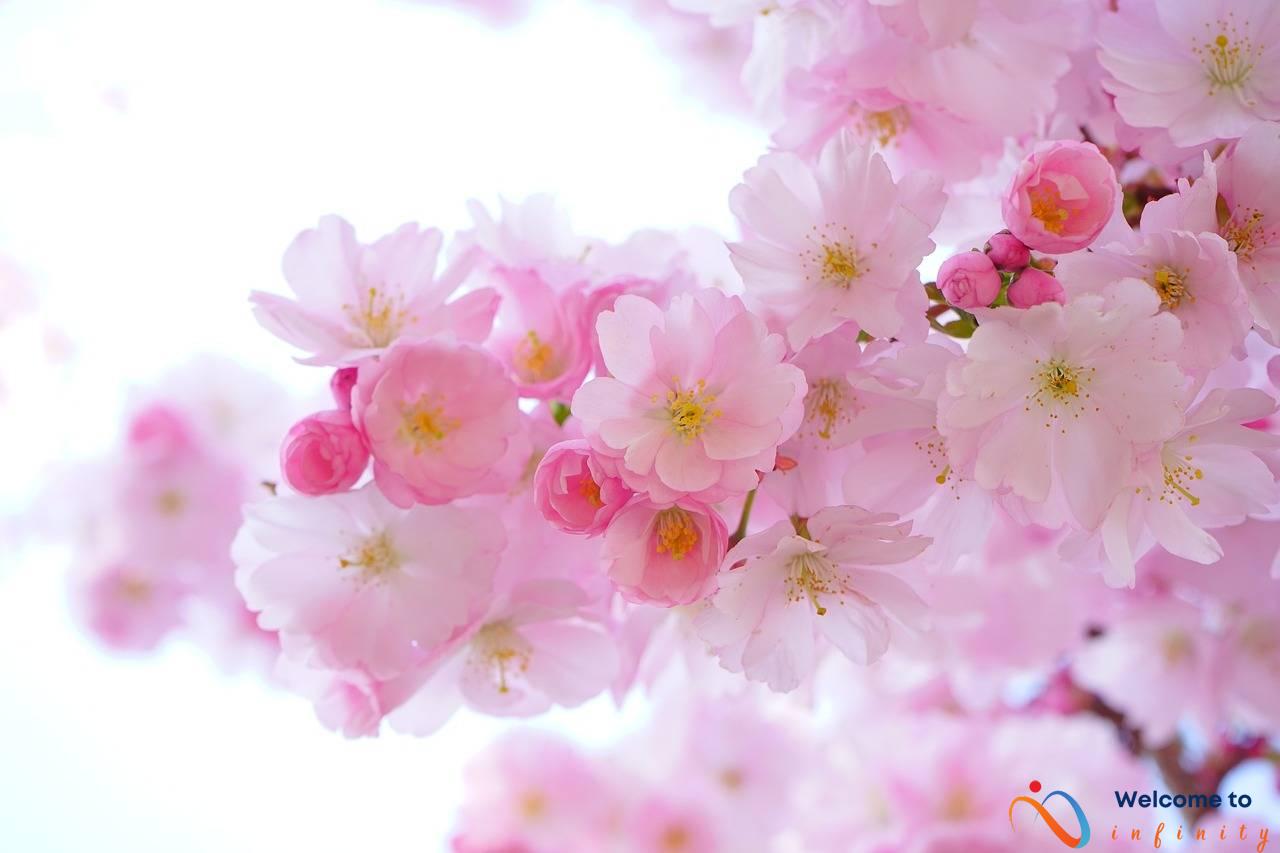Exfoliation is the process of removing dead skin cells from the outer layer of the skin. During winter, the skin is exposed to harsh weather conditions such as low humidity, cold air, and wind, which can cause it to become dry and dull. This is why exfoliation is crucial during the winter season for maintaining healthy and glowing skin.
Exfoliation not only removes dead skin cells, but it also unclogs pores, evens out skin tone, and stimulates the production of collagen. Exfoliating regularly during winter can help to combat the effects of the harsh weather on the skin and prevent it from becoming rough and flaky.
There are various benefits of exfoliation during winter, including improving moisturization, enhancing skin rejuvenation, and preparing the skin for other skincare products such as moisturizers and serums. By removing dead skin cells, moisturizers and serums can penetrate deeper into the skin, making them more effective.
It is essential to choose the right type of exfoliation for winter skincare. Physical exfoliation, which involves the use of scrubs, can be too harsh on the skin during winter. Enzymatic and chemical exfoliation, on the other hand, are gentler and can be more effective for removing dead skin cells without causing damage to the skin.
It is important to note that over-exfoliation can lead to skin irritation and damage, especially during winter when the skin is already sensitive. It is recommended to exfoliate once or twice a week, depending on your skin type and the exfoliating product you are using.
Overall, exfoliation plays a crucial role in winter skincare. By removing dead skin cells and preparing the skin for other skincare products, exfoliation can help maintain healthy and glowing skin throughout the winter season.
What is exfoliation?
Exfoliation is the process of removing dead skin cells from the surface of the skin. It is crucial for maintaining healthy and glowing skin, especially during the harsh winter months when the skin is prone to dryness and flakiness. Exfoliation helps to unclog pores, improve circulation, and enhance skin rejuvenation. By eliminating dead skin cells, the skin is able to better absorb moisturizers and other skincare products, resulting in more hydrated and radiant skin.
There are several benefits of exfoliation during the winter season. Firstly, it helps to increase the effectiveness of moisturizers. When dead skin cells accumulate on the surface of the skin, it prevents the moisturizer from penetrating deep into the skin. By exfoliating, you remove these dead skin cells and allow for better absorption of moisturizers, resulting in more hydrated and nourished skin. Additionally, exfoliation can help to combat the effects of winter on the skin, such as improving texture and preventing dryness and flakiness.
- Improved skin texture
- Enhanced skin rejuvenation
- Improved absorption of moisturizers
- Preventing dryness and flakiness
There are different ways to exfoliate the skin, including physical, enzymatic, and chemical exfoliation. Each type has its pros and cons, and it is important to choose the best one for your skin type and needs. Over-exfoliation can also have negative effects on the skin, so it is important to exfoliate only as needed.
In summary, exfoliation is a crucial step in maintaining healthy and glowing skin during the winter season. By removing dead skin cells and enhancing skin rejuvenation, it helps to combat the adverse effects of winter on the skin. With a consistent winter skincare routine that includes exfoliation and hydration, you can maintain healthy and radiant skin throughout the season.
How does winter affect the skin?
Winter weather can cause significant damage to the skin. The cold temperatures, harsh winds, and low humidity can strip the skin of its natural oils, leading to dryness and flakiness. This can be especially problematic for people with dry or sensitive skin.
In addition to dryness and flakiness, winter weather can also cause the skin to become dull and lackluster. This is because the reduced blood flow to the skin, which is a natural response to the cold, makes the complexion appear less radiant. Furthermore, the cold temperatures can cause the blood vessels to constrict, which can lead to redness and irritation.
Another way that winter weather can affect the skin is by exacerbating existing skin conditions such as eczema and psoriasis. This is because the dryness and lack of moisture in the air can cause these conditions to flare up, leading to discomfort and itching.
Overall, it is important to take care of your skin during the winter season to combat the adverse effects of cold weather. Adding exfoliation to your skincare routine is an excellent way to keep your skin looking healthy and glowing throughout the winter months.
Benefits of exfoliation during winter
Exfoliation is a crucial step in your winter skincare routine, offering many benefits to combat the adverse effects of the colder months on the skin. One major advantage of exfoliation is its ability to enhance moisturization, which is essential in preventing dryness and flakiness. By removing dead skin cells from the surface of the skin, exfoliation allows for better absorption of hydrating ingredients from moisturizers, serums, and masks.
Exfoliation can also help to rejuvenate the skin, promoting cell turnover and revealing brighter, smoother skin. Winter weather can make the skin look dull and tired, but with regular exfoliation, you can bring back that healthy glow. Additionally, exfoliation can help to unclog pores and reduce the appearance of blemishes, leaving you with clear and radiant skin.
There are different types of exfoliation that you can choose from, including physical, enzymatic, and chemical exfoliation. Physical exfoliation involves using scrubbing particles to physically remove dead skin cells, while enzymatic exfoliation uses enzymes to dissolve and break down the buildup on the skin. Chemical exfoliation uses acids to loosen and remove dead skin cells. During the winter season, it's best to opt for gentler forms of exfoliation to avoid any irritation or sensitivity.
It's also important to consider the frequency of exfoliation during the winter. While it's tempting to exfoliate more often to combat dryness and dullness, over-exfoliating can actually damage the skin and cause more harm than good. Generally, it's recommended to exfoliate once or twice a week during the winter season, depending on your skin type and sensitivity.
In conclusion, the benefits of exfoliation during winter are numerous, including better moisturization, enhanced skin rejuvenation, and clearer, more radiant skin. By incorporating exfoliation into your winter skincare routine, you can maintain healthy and glowing skin throughout the colder months.
Types of exfoliation
When it comes to exfoliation, there are three primary types: physical, enzymatic, and chemical. Each type has its pros and cons depending on your skin type and the specific needs of your skin during the winter season.
Physical exfoliators include scrubs, brushes, and loofahs, which work by physically removing dead skin cells from the surface of the skin. While physical exfoliation can be effective, it's important to choose a gentle option to avoid damaging or irritating your skin.
Enzymatic exfoliators use natural enzymes like papain or bromelain to dissolve or break down dead skin cells. These types of exfoliators are ideal for those with sensitive skin, as they gently exfoliate without causing irritation.
Chemical exfoliators, on the other hand, use acids like glycolic acid or salicylic acid to dissolve dead skin cells. They are usually the most potent option and can be effective for treating acne, but it's important to choose a formulation that's gentle enough for regular use.
During the winter season, enzymatic and chemical exfoliators may be more beneficial since physical exfoliation can be too harsh on skin that is already dry and sensitive from the cold weather. However, it's essential to choose products that are appropriate for your skin type and to follow the recommended usage instructions to avoid over-exfoliating.
Exfoliation frequency during winter
Exfoliation is a crucial step in any skincare routine, especially during the harsh winter months. While it helps to remove dead skin cells and promote cell turnover, it is essential not to overdo it. So how often should you exfoliate during winter, and what are the risks of over-exfoliation?
For most skin types, exfoliating once or twice a week during winter is enough. However, it's important to listen to your skin and adjust the frequency as needed. If you notice increased dryness or irritation after exfoliating, it might be a sign that you're doing it too often. In contrast, skipping exfoliation altogether may lead to dull, flaky skin.
Over-exfoliating can also cause damage to the skin barrier, leading to increased sensitivity, redness, and even breakouts. It is essential to choose a gentle exfoliant that suits your skin type and use it in moderation. Physical scrubs can be harsh on the skin, especially if it's already dry and flaky. Instead, try enzymatic or chemical exfoliants that work by dissolving dead skin cells without the need for physical scrubbing.
It's also important to avoid using multiple exfoliating products simultaneously. For instance, using a physical scrub, followed by an enzymatic exfoliant, and then a chemical peel, can be too much for your skin to handle and lead to irritation. Stick to a single exfoliant per session, and give your skin time to recover between treatments.
In conclusion, exfoliation can do wonders for your skin during winter, but it's essential to use it wisely. Determine the right frequency for your skin type, choose gentle exfoliants, and avoid over-exfoliation to maintain healthy and glowing skin all season long.
Exfoliating products for winter skincare
Exfoliating products play a vital role in keeping the skin healthy and beautiful during the harsh winter season. When selecting an exfoliating product, it is crucial to choose one that not only provides an effective exfoliation but also hydrates and soothes the skin. Moisturizing scrubs are an excellent option for removing dead skin cells while keeping the skin moisturized. Look for ingredients like honey, oats, or shea butter, which can nourish and hydrate the skin while exfoliating.
Face serums are another fantastic product to add to your winter skincare routine. They are concentrated formulas that penetrate deep into the skin, providing essential nutrients. Choose a serum that contains natural exfoliating ingredients like glycolic acid or AHAs, which can rejuvenate the skin and promote cell turnover. Vitamin C serum is also an excellent option for brightening and evening out the skin tone.
Masks are an excellent way to give your skin a deep treatment, providing the necessary nourishment and hydration. Look for masks that contain moisturizing ingredients like hyaluronic acid or jojoba oil and exfoliating ingredients like kaolin clay or charcoal. Masks can be used once or twice a week, depending on your skin type and the severity of dryness.
When using exfoliating products, it is essential to be gentle and not overdo it, especially during the winter season. Too much exfoliation can strip the skin of its natural oils, causing further dryness and irritation. Always follow the product's instructions and avoid harsh scrubs or acids that can damage the skin's protective barrier.
In conclusion, choosing the right exfoliating products can make a significant difference in keeping your skin healthy and glowing during the winter season. Remember to select products that provide both exfoliation and hydration, such as moisturizing scrubs, face serums, and masks while being gentle on the skin. Regular use of exfoliating products can not only improve moisturization, but also enhance skin rejuvenation and promote healthy skin throughout the season.
Other winter skincare tips
Aside from exfoliation, there are additional ways to maintain healthy and glowing skin during the winter season. One tip is to choose the right moisturizer for your skin type. Look for products that contain natural ingredients like shea butter, coconut oil, or jojoba oil, which can help keep your skin moisturized and nourished.
Another tip is to avoid taking hot showers, which can strip your skin of natural oils and cause dryness. Instead, opt for lukewarm water and limit your shower time to 10 minutes or less. After showering, pat your skin dry with a soft towel rather than rubbing vigorously.
Using a humidifier in your home can also help combat winter dryness by adding moisture to the air. This can benefit not only your skin but also your hair and respiratory system. Additionally, wearing gloves and scarves can protect your skin from the cold and wind when you're outside.
- Choose a moisturizer with natural ingredients.
- Avoid hot showers and limit shower time to 10 minutes or less.
- Use a humidifier in your home.
- Wear gloves and scarves to protect your skin from the cold and wind.
By following these additional tips and incorporating exfoliation into your winter skincare routine, you can maintain healthy and glowing skin all season long.
Benefits of a winter skincare routine
Maintaining a consistent skincare routine during winter is essential for achieving and maintaining healthy, glowing skin throughout the season. By following a winter skincare routine, individuals can reap various benefits that not only improve their skin's appearance but also promote its overall health. Here are some of the benefits of a winter skincare routine:
- Prevention of Dryness: Winter weather can cause significant dehydration, which can lead to dry and flaky skin. A consistent skincare routine helps to keep the skin moisturized by preventing water loss, thereby preventing dryness and flakiness.
- Reduces signs of Aging: Winter weather can cause premature aging of the skin, leading to wrinkles and fine lines. A consistent skincare routine that includes anti-aging products such as serums can help to reduce the signs of aging, leaving your skin looking youthful and healthy.
- Improves Skin Texture: The cold, dry winter weather can make the skin rough and uneven. A comprehensive skincare routine that includes exfoliation helps to remove dead skin cells and impurities, leaving the skin smooth and soft.
- Prevents Breakouts: Winter weather can clog the pores, leading to breakouts and blemishes. A consistent skincare routine helps to keep the pores clean and free from impurities, preventing breakouts and keeping the skin clear and healthy.
- Enhances Skin Radiance: The harsh winter weather can make the skin look dull and lifeless. A comprehensive skincare routine that includes products with brightening properties can help to enhance the skin's radiance, giving it a healthy, glowing look.
In conclusion, following a winter skincare routine is essential for maintaining healthy and glowing skin throughout the season. By using the right products and techniques, individuals can enjoy these benefits and keep their skin looking radiant all winter long.
Conclusion
Exfoliation is a crucial step in maintaining healthy and glowing skin, especially during the harsh winter season. By removing dead skin cells, exfoliation allows the skin to better absorb moisture and nutrients from skincare products, leading to enhanced moisturization and rejuvenation.
Furthermore, exfoliation helps combat the adverse effects of winter on the skin, such as dryness and flakiness, and promotes a smoother, brighter complexion.
However, it is important to note that over-exfoliation can strip the skin of its natural oils and lead to irritation. Therefore, it is recommended to exfoliate 1-2 times per week during the winter season.
In addition to exfoliation, a comprehensive winter skincare routine should include hydrating products such as moisturizers and hydrating masks, as well as avoiding hot showers and choosing the right products for your skin type.
A consistent winter skincare routine can lead to healthier, more radiant skin throughout the season, and exfoliation plays a key role in achieving this. Remember to choose the right type of exfoliation for your skin type and exfoliate in moderation for optimal results.










